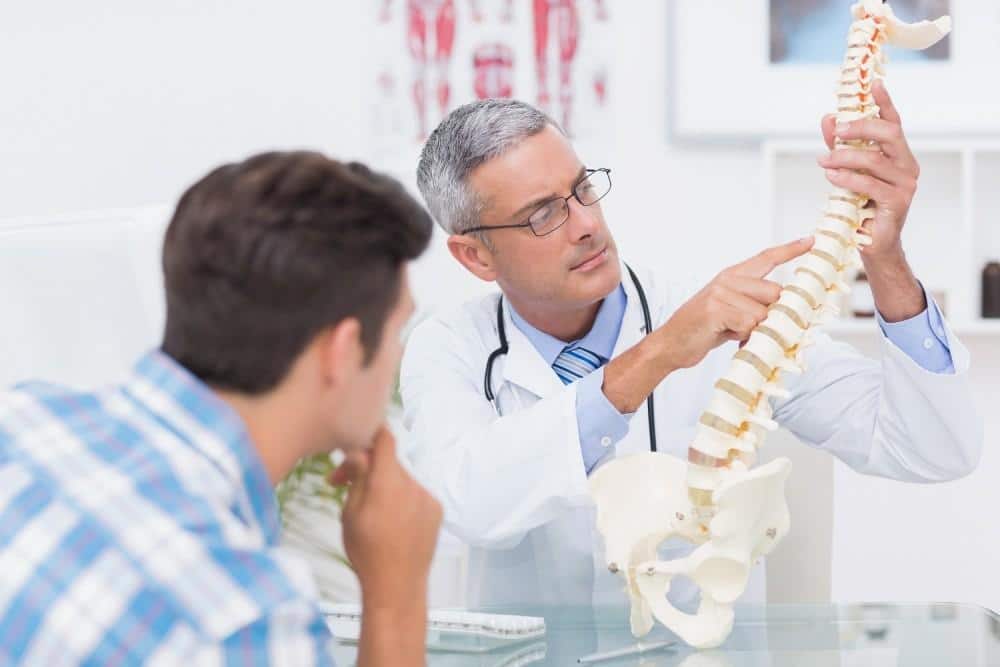Designed to house and protect your spinal cord, your spine is a complex part of your body. It is composed of various pieces, including the vertebrae, intervertebral discs, and spinal nerves.
Because of its complexity, your spine is at risk for various conditions, including disc herniation. When this happens, you can experience multiple symptoms, including severe pain.
At Kellogg Brain and Spine, Dr. Jordi Kellogg and his team provide you with a quick diagnosis and customized treatments for various spinal conditions, including herniated discs. Dr. Kellogg is an experienced neurosurgeon who offers his patients compassionate care and cutting-edge treatments.
Understanding a herniated disc
Intervertebral discs are the soft, spongy cushions between each one of your vertebrae. Their purpose is to absorb shocks to your spine and provide support and stability to the vertebrae in your spine.
The discs have a more rigid outer shell called the annulus and a soft, jelly-like inner portion known as the nucleus. The discs are substantial but suffer wear-and-tear from years of use and activity.
You can injure your intervertebral discs, leading to various conditions, including disc herniation.
When you suffer from a herniated disc, the soft inner nucleus begins to push on the outer annulus of the disc. The pressure often causes pain and discomfort in that area of your spine and can also lead to nerve symptoms.
Without proper treatment, the inner nucleus can put so much pressure on the annulus that it suffers a tear. When the annulus tears, the soft inner core can push out of the tear, causing even more uncomfortable symptoms.
Herniated discs can either be acute or chronic. Acute herniated discs often happen from an injury to your spine. In contrast, chronic herniated discs are caused by wear-and-tear over time.
Common signs of a herniated disc
A herniated disc typically causes various symptoms in the spine, arms, or legs. Your spine contains numerous nerves that supply the rest of your body. When you have a herniated disc, the pressure on your nerves can lead to various symptoms, including:
Extremity pain
Sharp or burning pain is typical for a herniated disc in your lower back or neck. When the disc presses on your nerves, you may have pain in your arm or hand when the herniation is in your neck.
If you have a herniated disc in your low back, you often have shooting pain in your leg, buttocks, or foot. Pain typically gets worse with specific movements.
Weakness
As the herniated disc continues to press on the nerves in your spine, the surrounding muscles can become weak. You may notice that you have trouble holding onto objects or stumbling or tripping when you walk from weakness in your legs.
Numbness
One of the symptoms of a herniated disc is numbness or tingling in your arms and legs. When the affected disc compresses the nerves, the result is numbness or tingling in the area those nerves supply, typically in your legs and arms.
Neck or back discomfort
Neck and back pain are common when you have a herniated disc in those areas. Although the pain often travels to your arms and legs, the pain may originate in your back or neck, causing severe discomfort.
Your symptoms may vary and worsen with movements or other actions like coughing and sneezing. Sometimes, the symptoms get better within a few days, while other times, the pain lingers for weeks.
What should you do next?
If you have a herniated disc, the best option is to get evaluated by a specialist. At your appointment, Dr. Kellogg asks you about your symptoms, including when they started and how long you’ve had them.
After getting a clear picture of your condition, Dr. Kellogg examines your back and neck to find out where your pain originates. He also orders imaging studies like an MRI to look closely at your intervertebral discs and nerves.
If he determines you have a herniated disc, he offers several treatments that depend on the severity of your condition. Conservative treatments are often provided first, including the following:
- Rest and activity modification
- Physical therapy
- Over-the-counter anti-inflammatory medications
- Ice or heat
- Muscle relaxers
Most herniated discs respond to conservative treatments within a few days. However, Dr. Kellogg recommends surgical intervention if you have a more severe herniation affecting your daily activities.
He offers disc replacements and decompression discectomy options for a herniated disc. He evaluates your specific condition to determine which option is best for you.
To get treatment for a herniated disc, don’t hesitate to call one of our offices in Oregon today, or request an appointment with Dr. Kellogg on our website.


